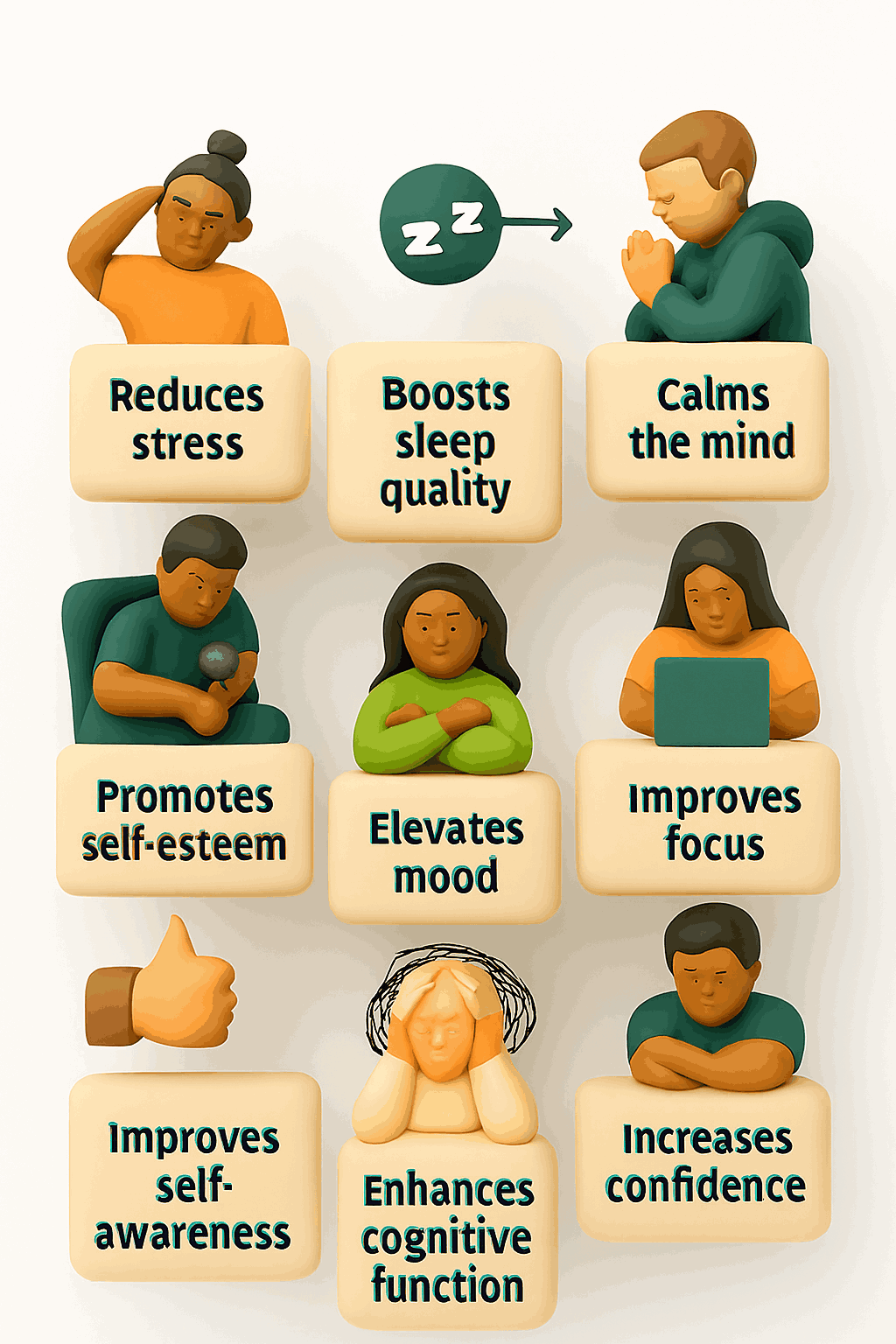World Mental Health Day: Tips to Improve Your Mental Health
- October 10, 2025
- Abrol Hospital
Understanding Mental Health
Mental health is a state of well-being where an individual can handle life’s challenges, work productively, and contribute to society. It influences how we think, feel, and behave. When mental health is compromised, it can affect our relationships, work performance, and even physical health.
Common mental health concerns include depression, anxiety disorders, bipolar disorder, and stress-related conditions. These issues are not signs of weakness; they are medical conditions that deserve the same attention and care as any physical illness. By understanding mental health, we take the first step toward building a healthier, more empathetic world.
The World Health Organization (WHO) highlights a different theme each year to guide global discussions. The theme for World Mental Health Day 2025 is “Mental Health for All: Building a Culture of Care.”
This theme emphasizes collective responsibility—encouraging individuals, healthcare systems, workplaces, and schools to prioritize emotional well-being.
Why Mental Health Should Be a Priority
Mental health directly affects every aspect of our lives. It impacts how we make decisions, build relationships, and cope with daily stressors. When mental health is neglected, it can lead to burnout, chronic stress, and even serious physical illnesses like hypertension and heart disease.
By prioritizing mental well-being, individuals experience improved focus, emotional stability, and resilience. Healthy minds create stronger families, more productive workplaces, and healthier communities. Hospitals now recognize the importance of integrated care—treating mental and physical health together rather than separately.
Recognizing Early Signs of Mental Health Struggles
Identifying mental health challenges early can prevent them from becoming severe. Everyone experiences emotional ups and downs, but persistent symptoms may indicate deeper issues.
Emotional Symptoms
Individuals may feel constant sadness, irritability, hopelessness, or emptiness. They might lose interest in activities they once enjoyed or struggle with feelings of guilt and worthlessness. Recognizing these emotions early is key to seeking help.
Behavioral Symptoms
Changes in daily behavior, such as withdrawing from social interactions, neglecting responsibilities, or relying on substances for relief, can signal distress. These behaviors often serve as coping mechanisms for unresolved emotional pain.
Physical Symptoms
Mental health issues often manifest physically. Frequent headaches, muscle tension, fatigue, insomnia, or appetite changes can all stem from emotional imbalance. When such symptoms persist, medical evaluation is essential.
Simple Daily Habits to Improve Mental Health
Small, consistent habits can significantly improve mental well-being over time. Integrating positive routines into daily life helps maintain emotional stability.
Start Your Day Mindfully
Instead of immediately checking messages or social media, begin your morning with calm reflection or meditation. A few minutes of deep breathing or gratitude journaling can set a positive tone for the day.
Get Enough Sleep
Quality sleep rejuvenates the brain and stabilizes mood. Adults should aim for 7–8 hours of uninterrupted rest each night. Avoid caffeine late in the day and maintain a consistent bedtime routine to enhance sleep quality.
Practice Gratitude
Gratitude shifts focus from what’s lacking to what’s valuable. Keeping a gratitude journal or expressing appreciation daily helps boost happiness and reduce negative thinking patterns.
Maintain a Balanced Diet
Nutrition plays a vital role in mental health. Foods rich in omega-3 fatty acids, vitamin B12, and magnesium support brain function. Incorporating fruits, vegetables, nuts, and whole grains into your diet can elevate mood and concentration.
The Role of Exercise in Mental Wellness
Exercise is one of the most powerful natural antidepressants. Physical activity releases endorphins, which improve mood and reduce anxiety. Regular movement enhances sleep quality, boosts self-esteem, and promotes brain health.
Even moderate exercise—such as walking, yoga, swimming, or cycling—can make a significant difference. Hospitals often recommend physical activity as part of mental health treatment plans, as it strengthens both body and mind.

FAQs About Morning Sickness during Pregnancy
Morning sickness usually starts around the 6th week of pregnancy and can continue through the first trimester. Some women may experience it a bit earlier or later depending on hormone levels and body sensitivity.
Exercise regularly, eat a balanced diet, get quality sleep, practice gratitude, and maintain strong social connections.
Be patient, listen without judgment, show empathy, and guide them toward professional counseling or hospital support programs.
Foods rich in omega-3s, vitamins, and antioxidants—such as salmon, walnuts, spinach, and dark chocolate—enhance brain function and emotional balance.
Students can manage stress through time management, regular breaks, physical activity, and talking openly with mentors or counselors when feeling overwhelmed.

